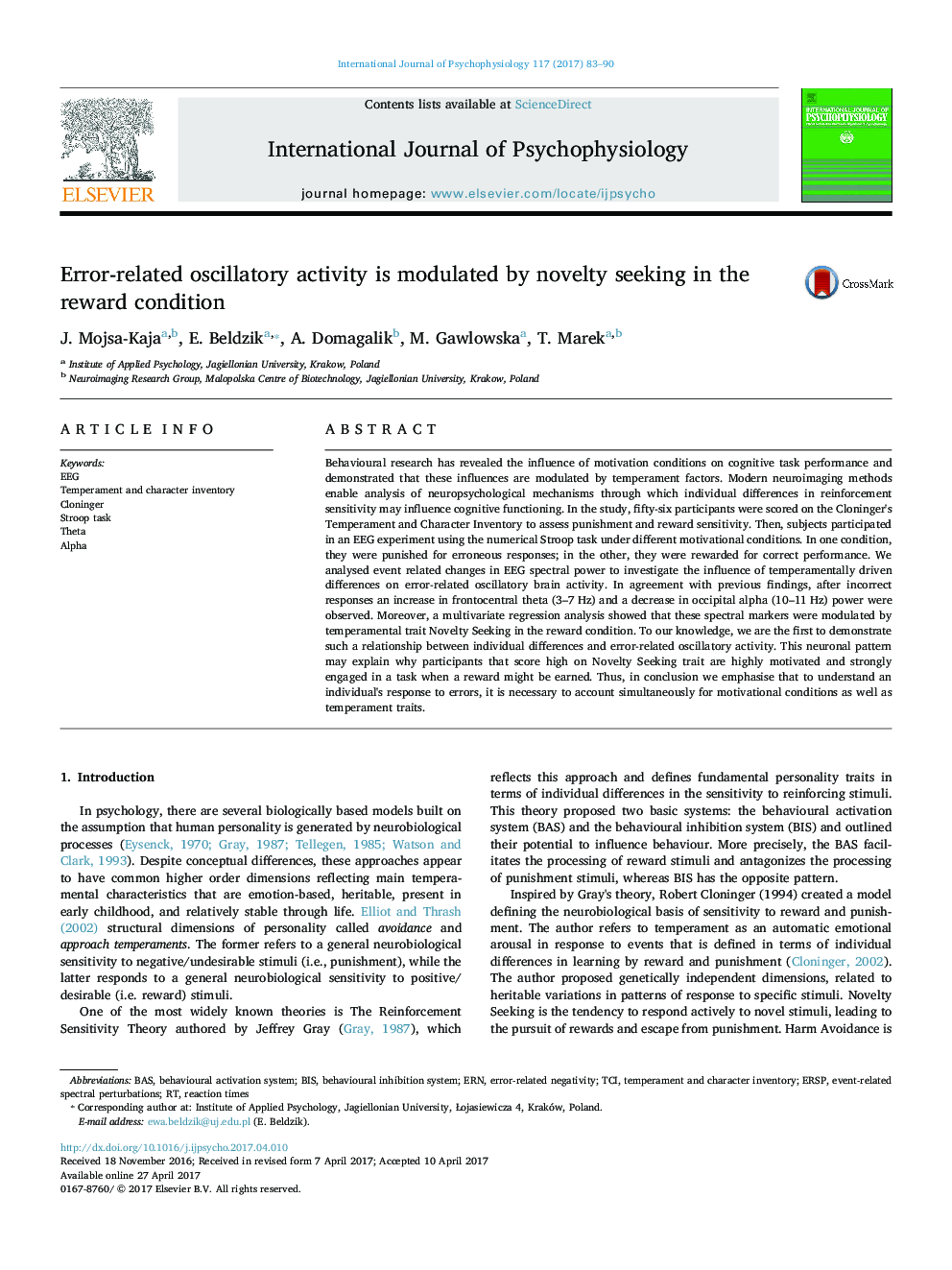| کد مقاله | کد نشریه | سال انتشار | مقاله انگلیسی | نسخه تمام متن |
|---|---|---|---|---|
| 5042239 | 1474379 | 2017 | 8 صفحه PDF | دانلود رایگان |
- Errors result in increase in frontocentral theta and decrease in occipital alpha.
- These spectral markers are modulated by trait Novelty Seeking in the reward condition.
- Motivational conditions and temperamental traits influence brain activity.
Behavioural research has revealed the influence of motivation conditions on cognitive task performance and demonstrated that these influences are modulated by temperament factors. Modern neuroimaging methods enable analysis of neuropsychological mechanisms through which individual differences in reinforcement sensitivity may influence cognitive functioning. In the study, fifty-six participants were scored on the Cloninger's Temperament and Character Inventory to assess punishment and reward sensitivity. Then, subjects participated in an EEG experiment using the numerical Stroop task under different motivational conditions. In one condition, they were punished for erroneous responses; in the other, they were rewarded for correct performance. We analysed event related changes in EEG spectral power to investigate the influence of temperamentally driven differences on error-related oscillatory brain activity. In agreement with previous findings, after incorrect responses an increase in frontocentral theta (3-7Â Hz) and a decrease in occipital alpha (10-11Â Hz) power were observed. Moreover, a multivariate regression analysis showed that these spectral markers were modulated by temperamental trait Novelty Seeking in the reward condition. To our knowledge, we are the first to demonstrate such a relationship between individual differences and error-related oscillatory activity. This neuronal pattern may explain why participants that score high on Novelty Seeking trait are highly motivated and strongly engaged in a task when a reward might be earned. Thus, in conclusion we emphasise that to understand an individual's response to errors, it is necessary to account simultaneously for motivational conditions as well as temperament traits.
Journal: International Journal of Psychophysiology - Volume 117, July 2017, Pages 83-90
